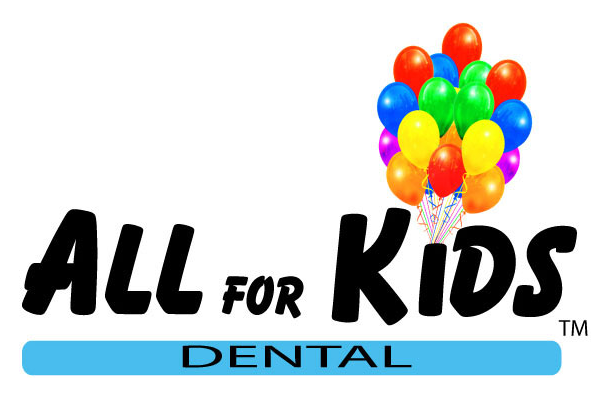
Sedation
Nitrous Oxide
Some children are given nitrous oxide/oxygen - or what you may know as laughing gas - to relax them for their dental treatment. Nitrous oxide/oxygen is a blend of two gases, oxygen, and nitrous oxide. Nitrous oxide/oxygen is given through a small breathing mask which is placed over the child's nose, allowing them to relax without putting them to sleep. The American Academy of Pediatric Dentistry recognizes this technique as a very safe, effective technique for treating children's dental needs. The gas is mild, easily taken, and it is quickly eliminated from the body, and it is non-addictive. While inhaling nitrous oxide/oxygen, your child remains fully conscious and maintains all of their natural reflexes. Things you should know before pediatric sedation.
Prior to your appointment:

- Please inform us of any change in your child's health and/or medical condition.
- Tell us about any respiratory condition that makes breathing through the nose difficult for your child. It may limit the effectiveness of nitrous oxide/oxygen.
- Let us know if your child is taking any medication on the day of the appointment.
Conscious Sedation
Conscious sedation is recommended for apprehensive children, very young children, and children with special needs. It is used to calm your child and to reduce the anxiety or discomfort associated with dental treatments. Your child may become quite drowsy and may even fall asleep, but they will not become unconscious.
There are a variety of different medications that can be used for conscious sedation. Your dentist or orthodontist will prescribe the medication best suited for your child's overall health and dental treatment plan. We will be happy to answer any questions you might have concerning the specific medicine we plan to administer to your child.
Prior to your appointment:
- Please notify us of any change in your child's health and/or medical condition. Do not bring your child for treatment if they have a fever, ear infection, or cold. Should your child become ill, contact us to see if it is necessary to postpone the appointment.
- Inform the doctor of any prescriptions that your child is currently taking and any drug reactions or change in medical history.
- Please dress your child in loose-fitting, comfortable clothing.
- Please make sure that your child goes to the bathroom immediately prior to arriving at the office.
- Your child should not have solid food for at least 6 hours prior to their sedation appointment, and should only consume clear liquids for up to 4 hours before the appointment.
- The child's parent or legal guardian must remain at the office during the complete procedure.
- Please watch your child closely while the medication is taking effect. Do not leave them unattended.
- Your child will act drowsy and may become slightly excited at first.
After the sedation appointment:
- Your child will be drowsy and will need to be monitored very closely. Keep your child away from areas of potential harm.
- If your child wants to sleep, place them on their side with their chin up. Wake your child every hour and encourage them to have something to drink in order to prevent dehydration.
- At first, it is best to give your child sips of clear liquids to prevent nausea.
- Your child's first meal should be light and easily digestible.
- If your child vomits, help them bend over and turn their head to the side to ensure that they do not inhale the vomit.
- Because we use a local anesthetic to numb your child's mouth during the procedure, your child may have the tendency to bite or chew their lips, cheeks, and/or tongue and/or rub and scratch their face after treatment. Please observe your child carefully to prevent any injury to these areas.
- Please call our office for any questions or concerns that you might have.
IV Sedation
IV Sedation is recommended for apprehensive children, very young children, and children with special needs that do not work well under conscious sedation. Our dentist performs the dental treatment in our office with the child anesthetized under IV sedation, which is administered and monitored by an anesthesiologist.
Prior to your appointment:
- Please notify us of any change in your child's health and/or medical condition. Do not bring your child in for treatment with a fever, ear infection, or cold. Should your child become ill, contact us to see if it is necessary to postpone the appointment.
- Please inform the doctor of any prescriptions that your child is currently taking and any drug reactions and/or change in medical history.
- Please dress your child in loose-fitting, comfortable clothing.
- Please make sure that your child goes to the bathroom immediately prior to arriving at the office.
- Your child should not have milk or solid food after midnight prior to the scheduled procedure and clear liquids ONLY, like water, apple juice, or Gatorade, for up to 6 hours prior to the appointment.
- The child's parent or legal guardian must remain at the office during the complete procedure.
After the sedation appointment:
- Your child will be drowsy and will need to be monitored very closely. Keep your child away from areas of potential harm.
- If your child wants to sleep, place them on their side with their chin up. Wake your child every hour and encourage them to have something to drink in order to prevent dehydration. At first, it is best to give your child sips of clear liquids to prevent nausea.
- Your child's first meal should be light and easily digestible.
- If your child vomits, help them bend over and turn their head to the side to ensure that they do not inhale the vomit.
- Please call our office for any questions or concerns that you might have.
